Latest News & Updates – Study Abroad with iae GLOBAL Pakistan
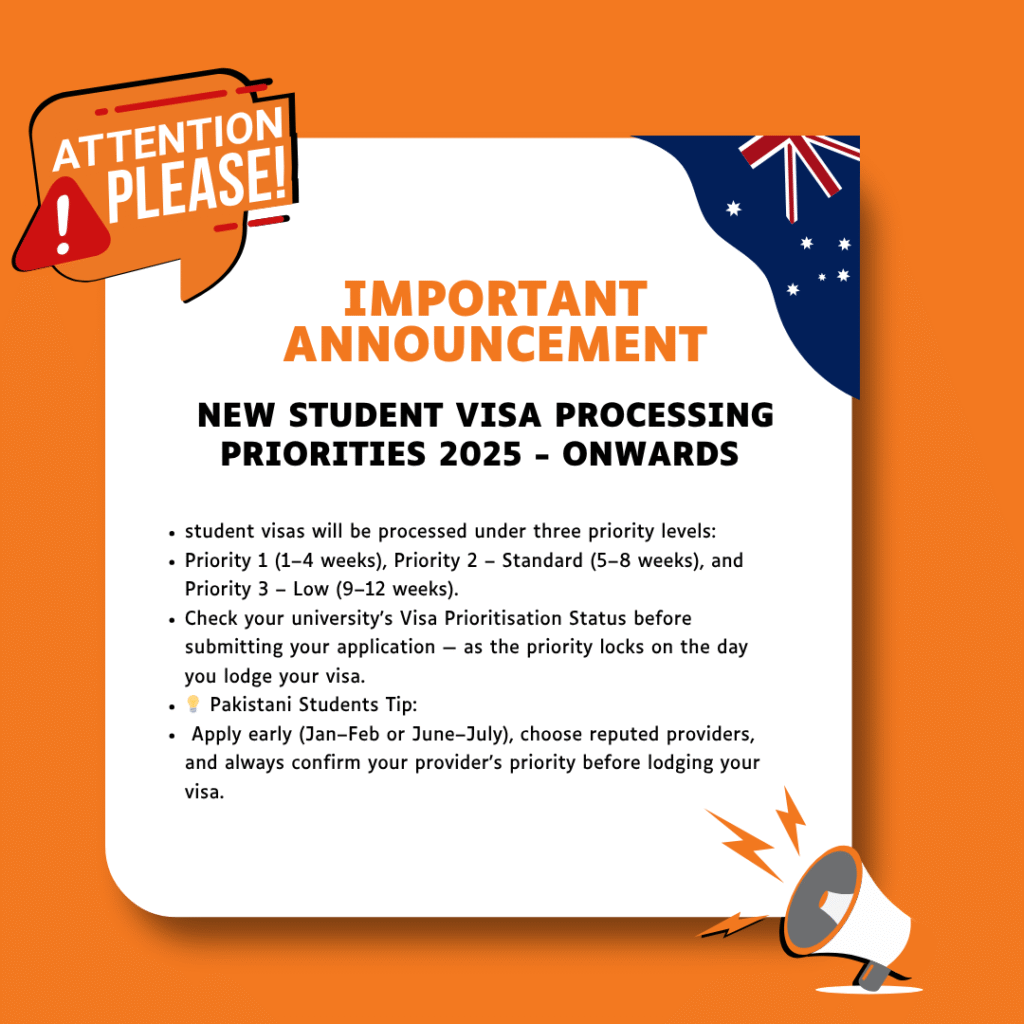
Starting in 2025, Australian student visa applications will follow three priority levels: Priority 1 (1–4 weeks), Priority 2 (5–8 weeks), and Priority 3 (9–12 weeks). Applicants should verify their university’s Visa Prioritisation Status before submission, as the priority locks on the day of lodgement. Pakistani students are advised to apply early (Jan–Feb or June–July), choose reputed education providers, and confirm their provider’s priority for faster student visa processing.
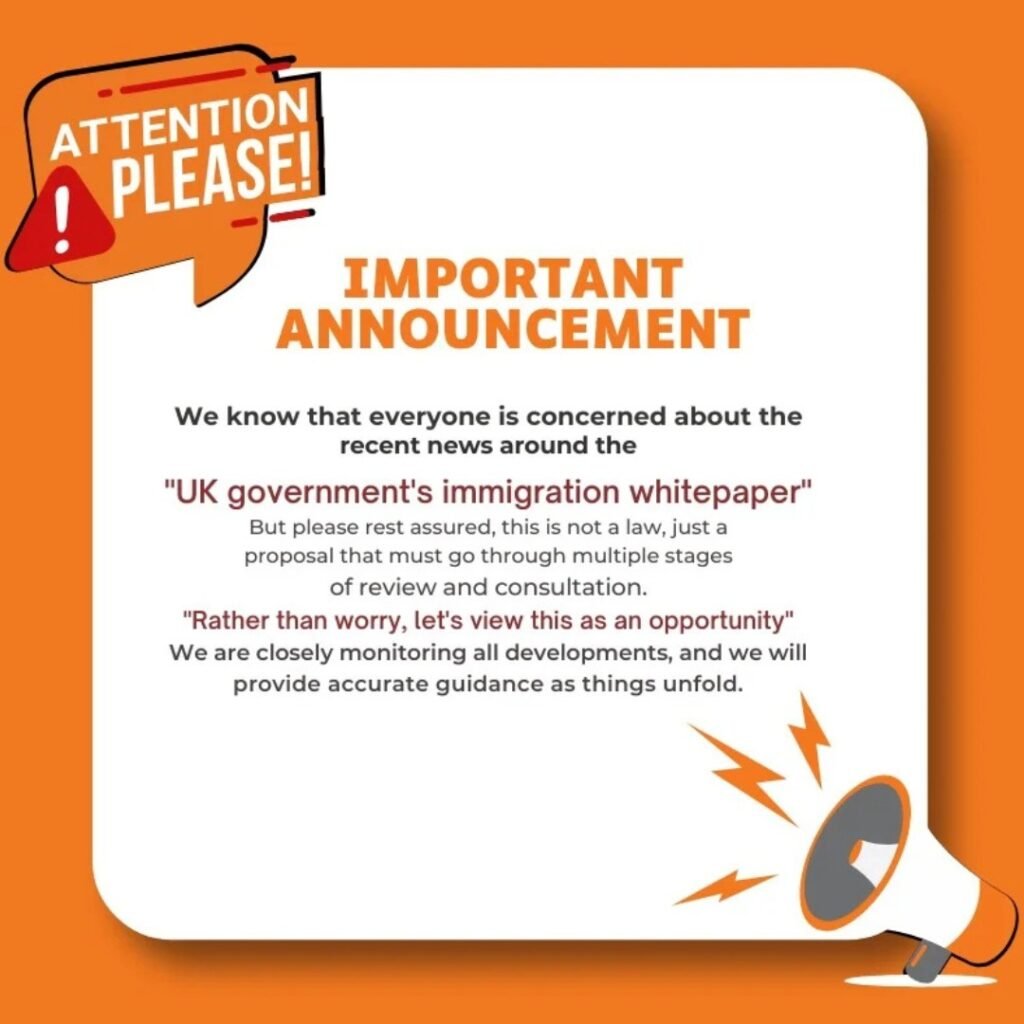
Major policy changes are on the way! From January 2027, the Graduate Visa stay will reduce to 18 months (36 months for PhD holders). English proficiency will rise to B2 (A-level) from January 2026, and financial proof for Student Visas will increase from November 2025. The Skilled Worker visa list is being narrowed, and Indefinite Leave to Remain may soon require 10 years. Stay informed before applying!
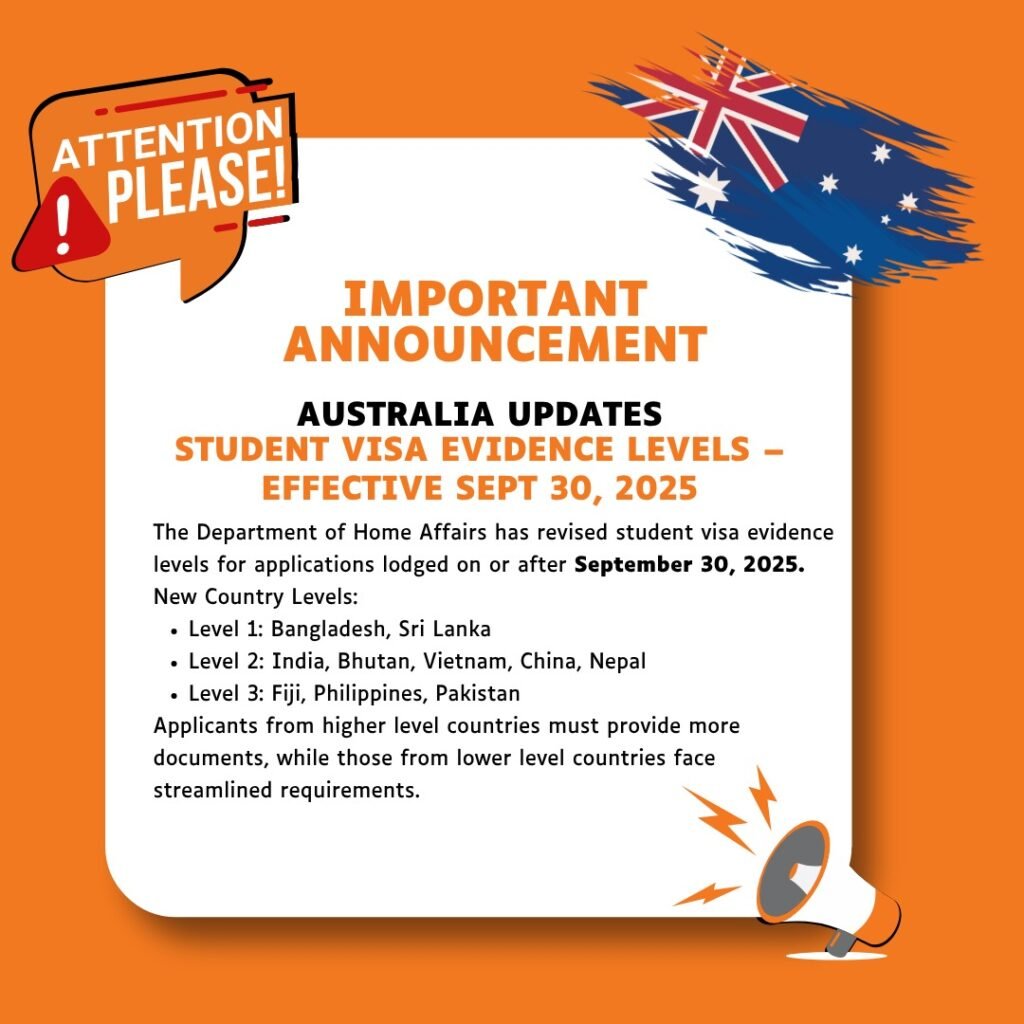
Australia’s government uses a document checklist tool to assess student visa risk levels based on a student’s country and education provider. Recent reports show Bangladesh and Sri Lanka as low-risk (Level 1), India, Vietnam, and China as moderate-risk (Level 2), and Pakistan, the Philippines, and Colombia as high-risk (Level 3). India and Vietnam improved from Level 3, while China dropped due to rising asylum applications from students.
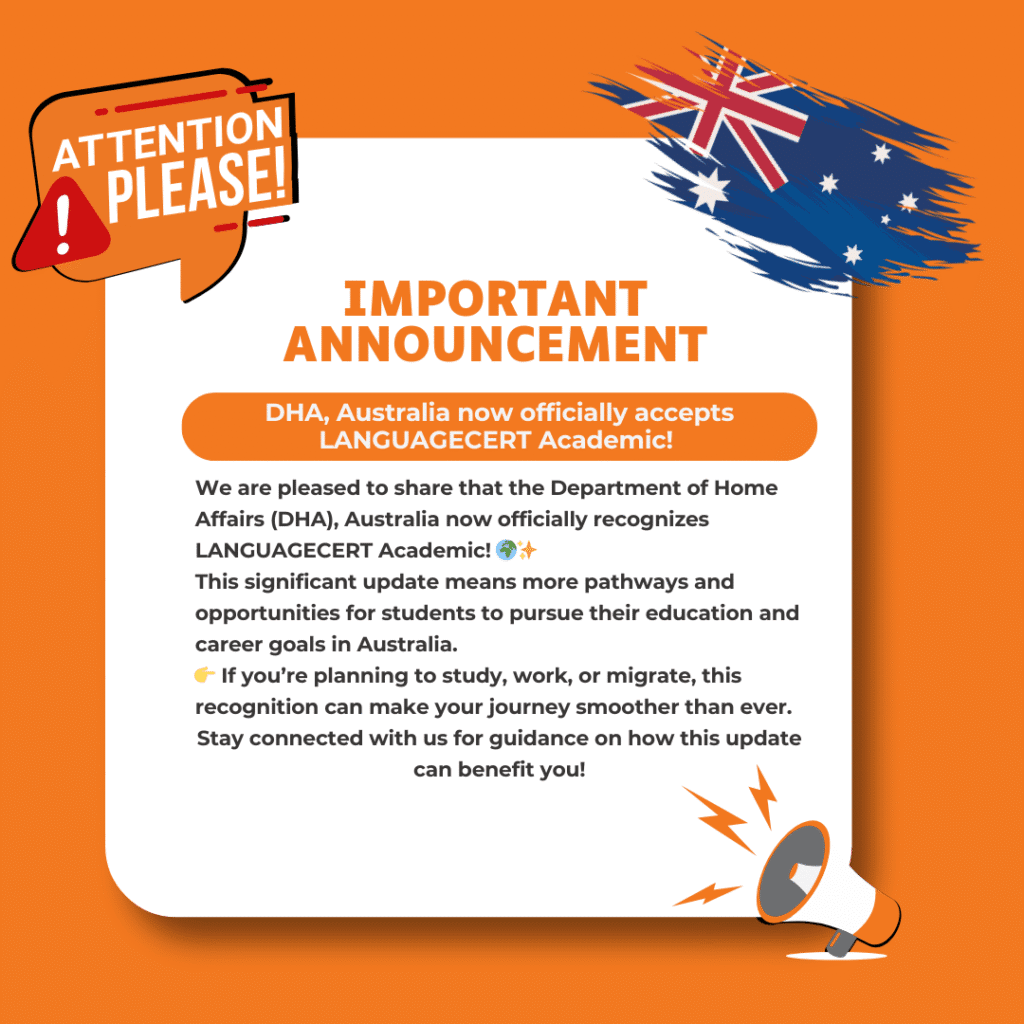
Good news for students who want to study in Australia: As of 7 August 2025, the Department of Home Affairs has officially approved LANGUAGECERT Academic as an accepted English test for visas—covering study, work, and skilled migration. This change gives you more flexibility to meet requirements with confidence. Having guided students for over 15 years, our team will support your journey step by step, free of charge and fully focused on your success.
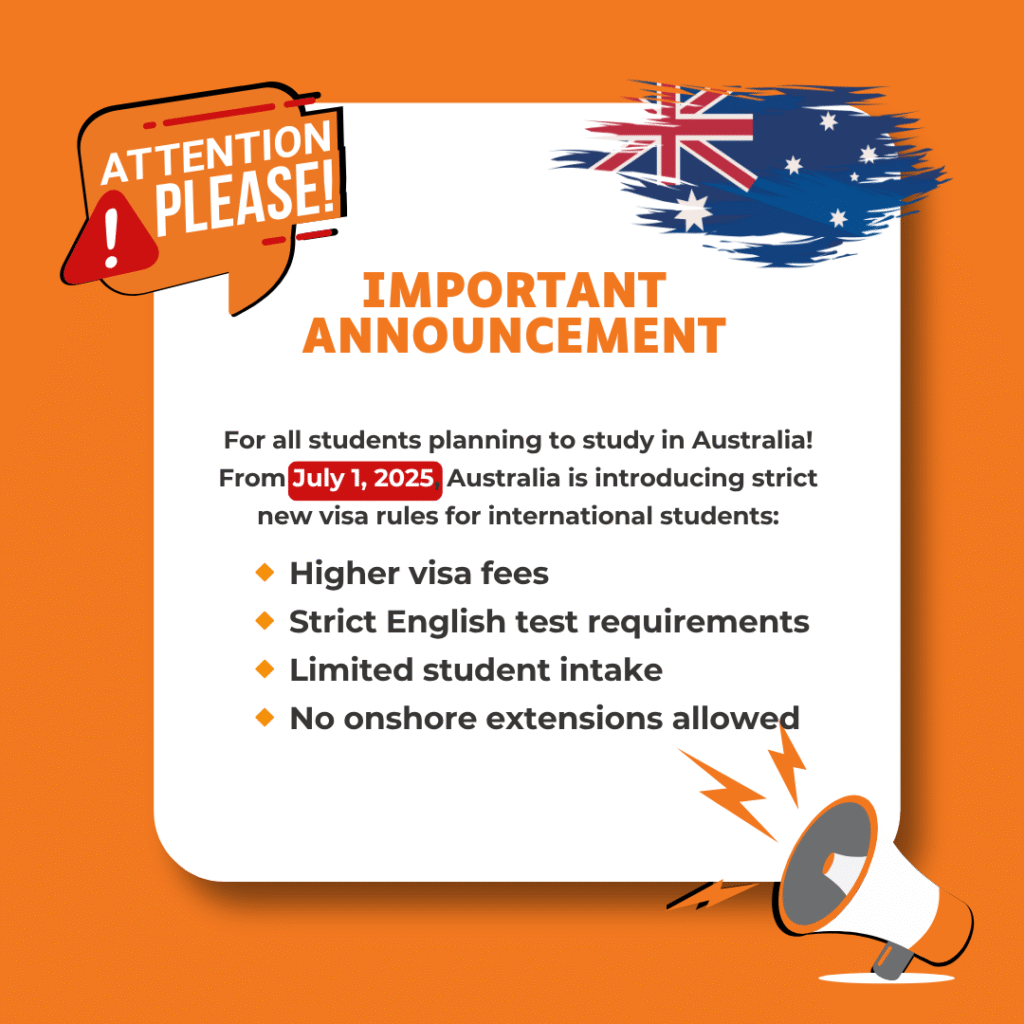
Australia is introducing major student visa changes from July 1, 2025, directly impacting Pakistani students. Key updates include higher visa fees, stricter English requirements, reduced student intake, and removal of onshore visa extensions. These changes aim to ensure stronger academic readiness and tighter approvals. Students planning for 2025 or 2026 intakes should start early. iae GLOBAL Pakistan offers 100% free expert support through certified, foreign-graduate counselors, guiding you from university selection to visa filing. Visit our Islamabad or Lahore offices for trusted advice.
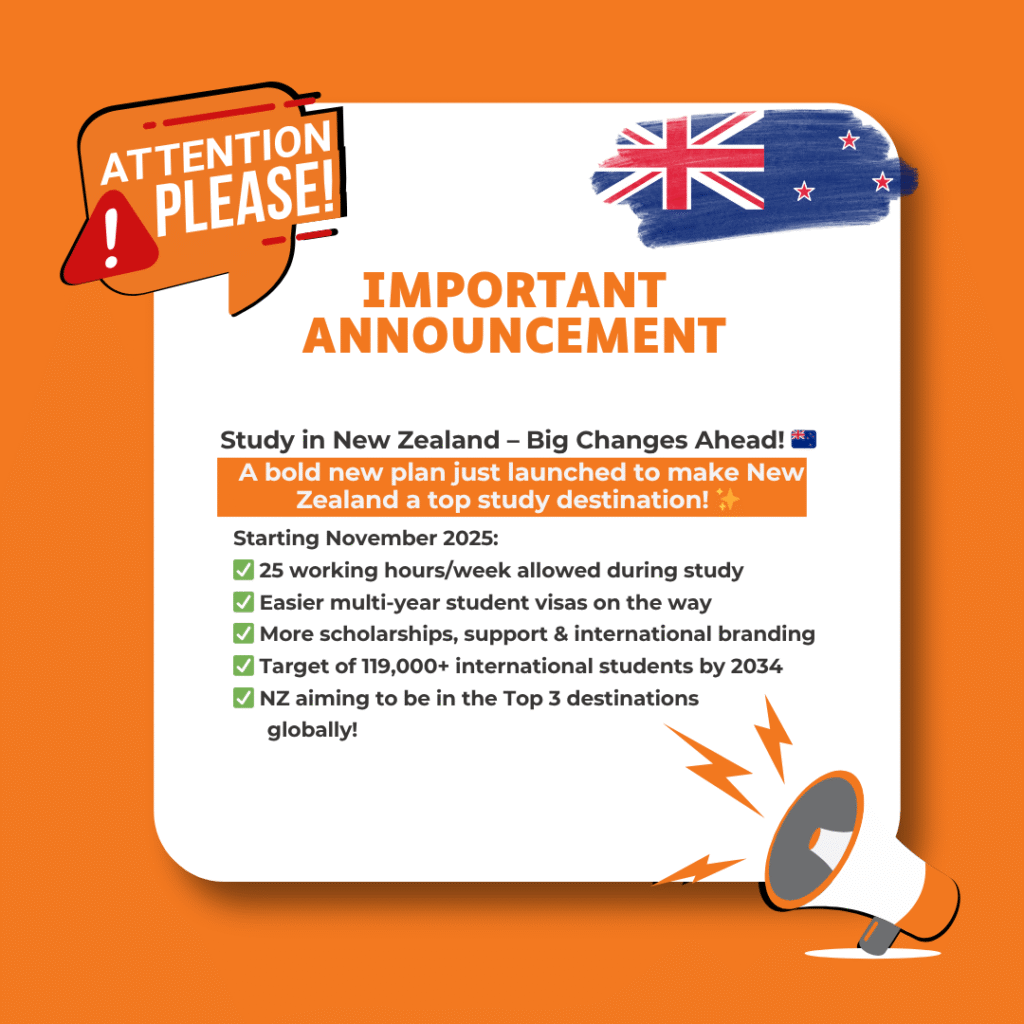
New Zealand has announced student-friendly visa reforms effective November 2025, positioning it among the top three global study destinations. For Pakistani students, benefits include up to 25 working hours weekly during study, easier multi-year visas, more scholarships, and enhanced student support. The government also targets welcoming 119,000+ international students by 2034. These reforms ensure affordable, high-quality education with excellent post-study work opportunities. For expert, certified counseling, visit iae GLOBAL Pakistan offices in Islamabad or Lahore for 100% free guidance for 2026 intakes.
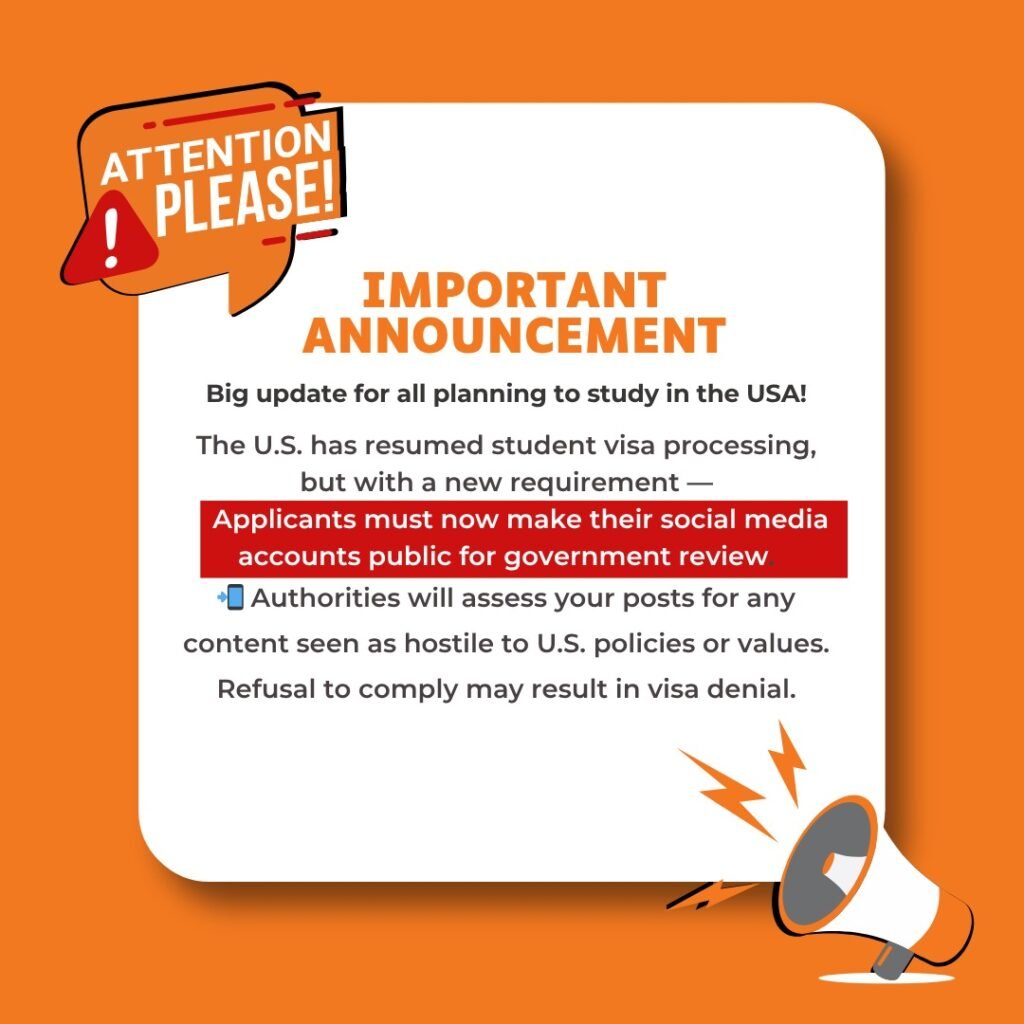
The U.S. has resumed student visa processing with a new requirement: applicants must now make their social media accounts public for government review. Authorities will examine online activity to identify any content that may be considered hostile to U.S. policies or values. Failure to comply with this requirement or attempting to hide or restrict access to social media profiles could lead to visa denial. This policy aims to enhance security screening for incoming international students.
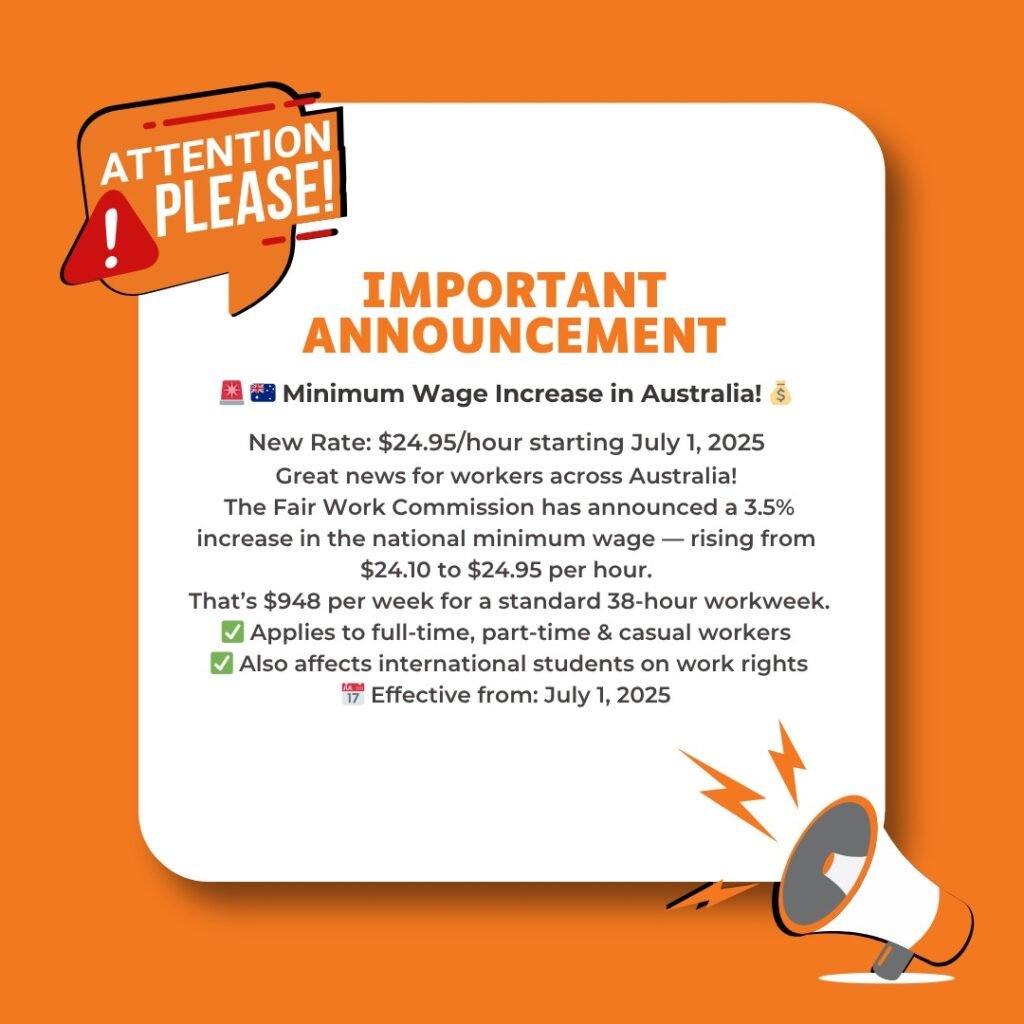
Minimum Wage Increase in Australia: Starting July 1, 2025, the national minimum wage will rise to $24.95 per hour, up from $24.10 — a 3.5% increase announced by the Fair Work Commission. This equates to $948 per week for a standard 38-hour workweek. The new rate applies to all full-time, part-time, and casual workers, including international students with work rights. This adjustment aims to support workers amid rising living costs and will take effect across all eligible employment categories.
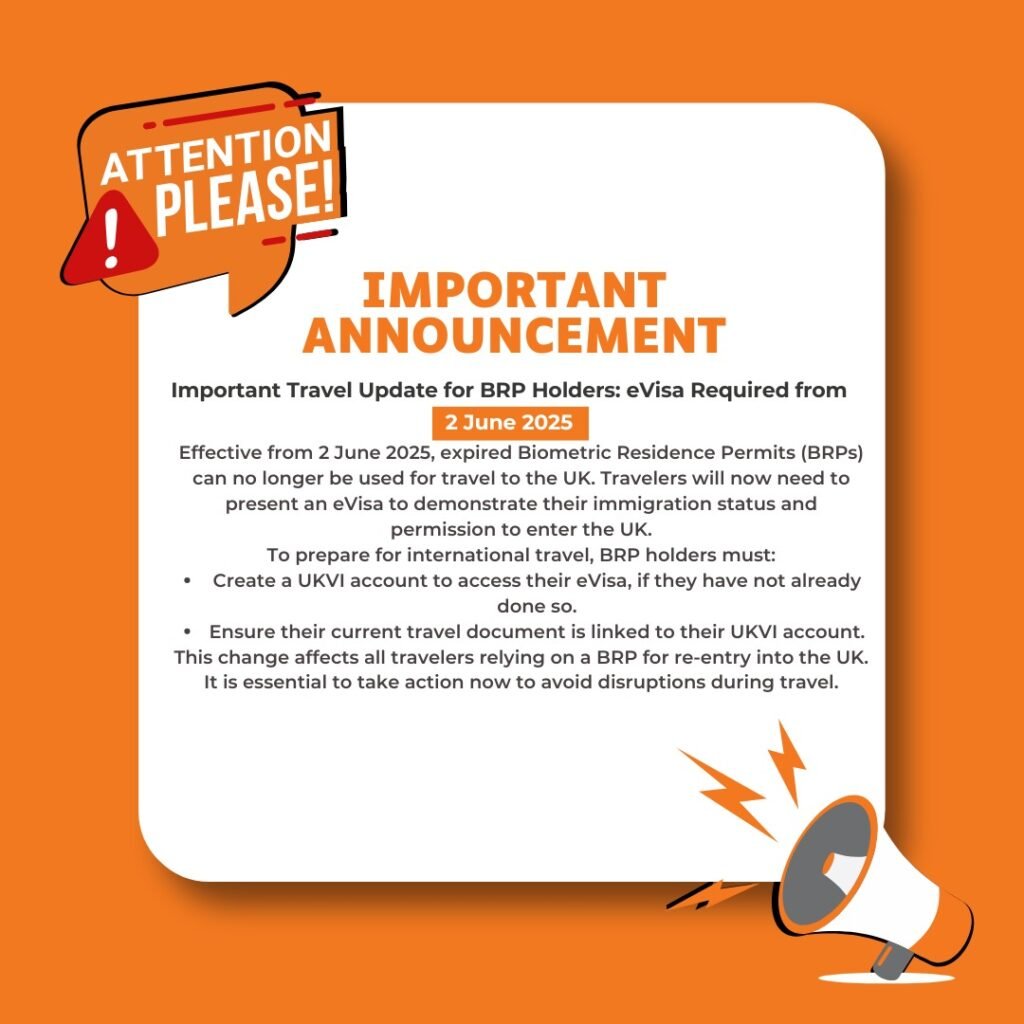
Important Update for BRP Holders: eVisa Now Required From 2 June 2025, expired BRPs can no longer be used for UK re-entry. Travelers must present an eVisa to prove their immigration status. To avoid travel issues, BRP holders should create a UKVI account and ensure their travel document is linked to it. This applies to all relying on BRPs for UK entry. Take immediate action to stay compliant and ensure smooth international travel. Don’t delay—prepare now for this critical change.
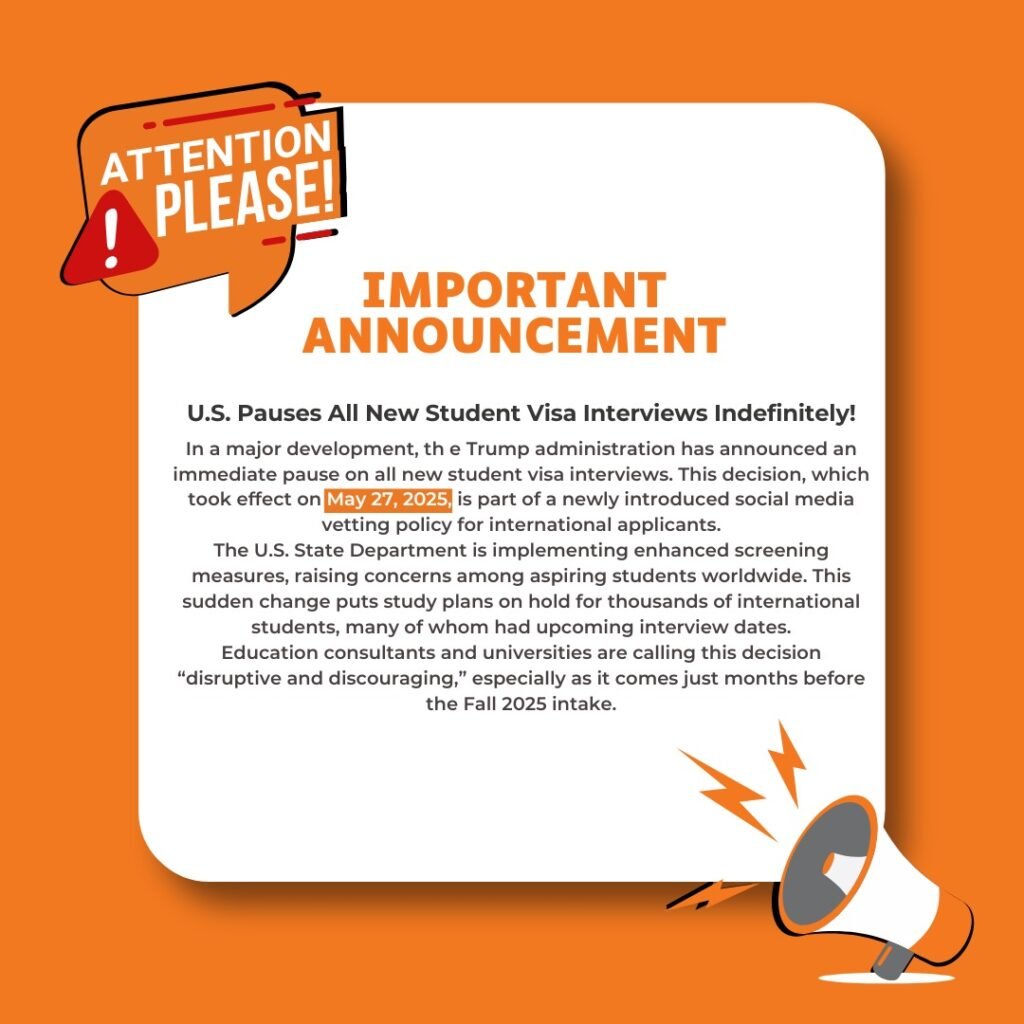
U.S. Pauses All New Student Visa Interviews Indefinitely The U.S. has paused all new student visa interviews, effective May 27, 2025. This follows the Trump administration’s new social media vetting policy for international applicants. The sudden move has shocked students globally, especially those set for Fall 2025. Many now face uncertainty as interview dates are canceled without notice. Education consultants and universities are calling the policy disruptive and discouraging, urging clarity and reconsideration.

In response to concerns over the UK government's immigration whitepaper, it's important to note this is merely a proposal—not a law. It will undergo various stages of review and consultation before any implementation. Students are encouraged not to worry, but to see this as a potential opportunity. The situation is being monitored closely, and accurate updates will be provided as they emerge. Stay informed, stay calm, and trust that guidance will follow as developments unfold.
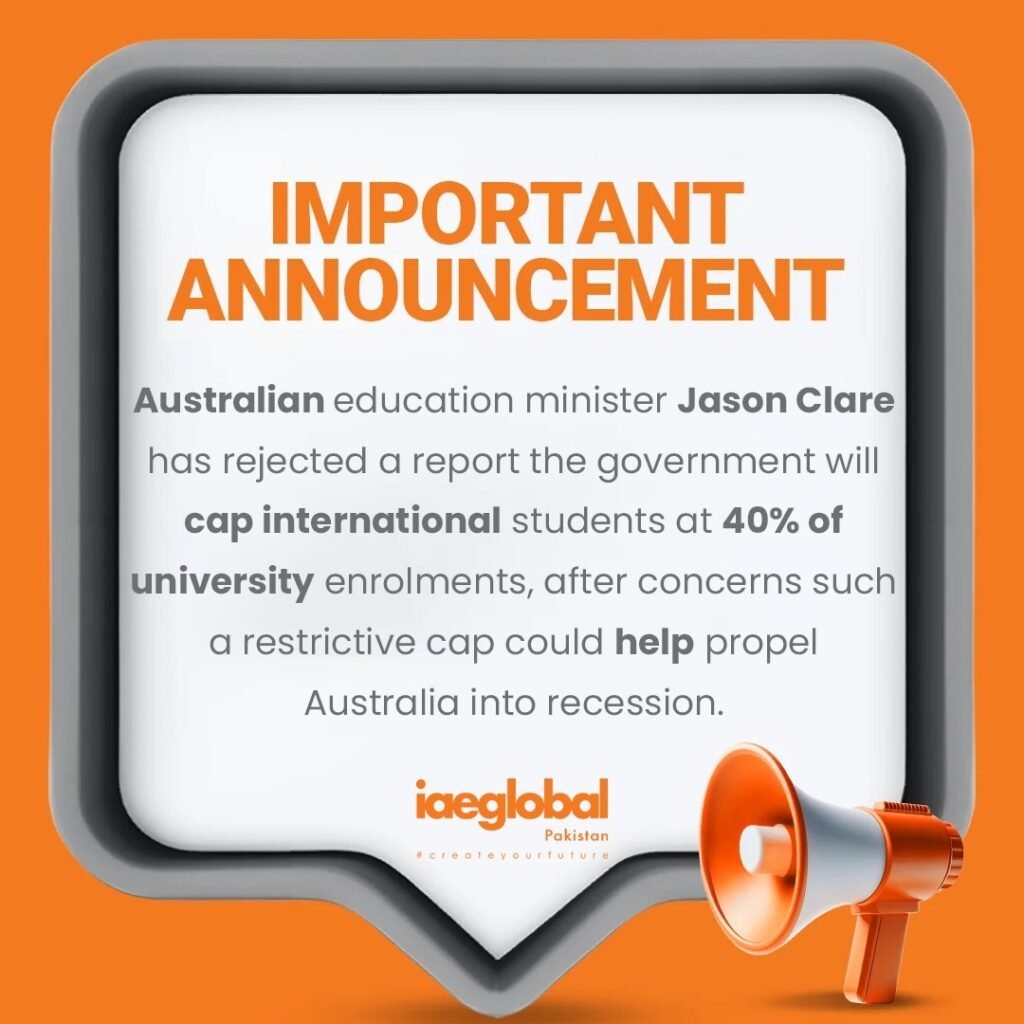
Labor rejects report that international students will be capped at 40% of university enrolments. The education minister has rejected a report the government will cap international students at 40% of university enrolments, after concerns such a restrictive cap could help propel Australia into recession. Jason Clare on Thursday said Labor was “not intending” a cap of that size, and will help protect the “social licence” of the international education sector and not harm an “incredibly important national asset”.

New Zealand has expanded work rights for the accompanying dependants of foreign students, allowing spouses and partners to work while their family member studies. This policy aims to attract more international students by providing greater support and flexibility for their families. It reflects New Zealand's commitment to being a welcoming and inclusive destination for education, enhancing the overall experience for international students and their dependants.

Starting July 1st, 2024, Australia will raise the fee for International Student Visas from $710 to $1600. This significant increase aims to cover administrative costs and reflects broader changes in immigration policy. The adjustment may impact prospective students' financial planning, potentially influencing enrollment decisions and educational opportunities in Australia. As the new fee structure takes effect, stakeholders and applicants are advised to stay informed about further developments and adjustments in visa policies.

Australia has announced that it will not impose caps on international student enrollments from January 2025. The decision comes after the Education Services for Overseas Students Amendment (Quality and Integrity) Bill 2024 was not debated during the Senate's final sitting. This means universities and vocational institutions will not face the proposed 270,000-student limit for 2025. The move signals a commitment to supporting international education as policies continue to evolve.
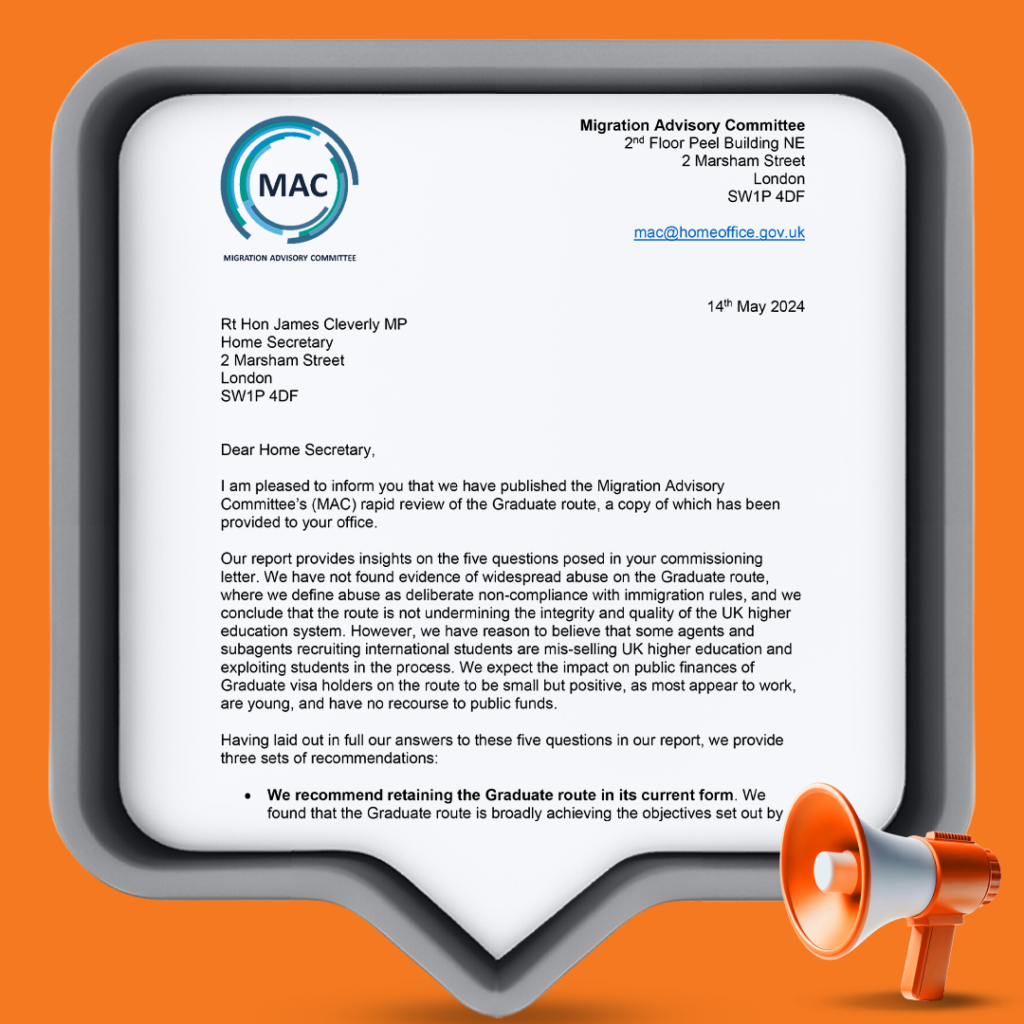
In 2023, the UK government curtailed dependents' access to student visas for one-year Masters’ programs. Since January 2024, dependents are prohibited on both student and Graduate routes, aiming to lower graduate visa numbers. This shift already slashed international postgraduate deposits for September 2024 by 63%. The Migration Advisory Committee’s May 14, 2024 findings advocate for preserving the Graduate route, citing no widespread abuse despite reduced student recruitment under the new policy.

Effective March 23, 2024, the Australian Government has replaced the Genuine Temporary Entrant (GTE) requirement for student visas with the Genuine Student (GS) requirement, applicable to new applications. Those lodging before this date must still adhere to GTE standards. The updated approach replaces the 300-word GTE statement with targeted questions, aiming to assess genuine student intentions effectively. This change streamlines the visa process while ensuring applicants' commitment to study in Australia is appropriately evaluated.

The Home Secretary's letter to the Migration Advisory Committee (MAC) responds to their Immigration Shortage List (ISL) published on February 23, 2024. It details the government's acceptance of recommended changes from the review. Additionally, the letter addresses recommendations put forth in MAC's earlier review of the shortage occupation list on October 3, 2023, also confirming their acceptance. This collaborative approach ensures alignment between policy adjustments and addressing critical skills shortages in the UK.
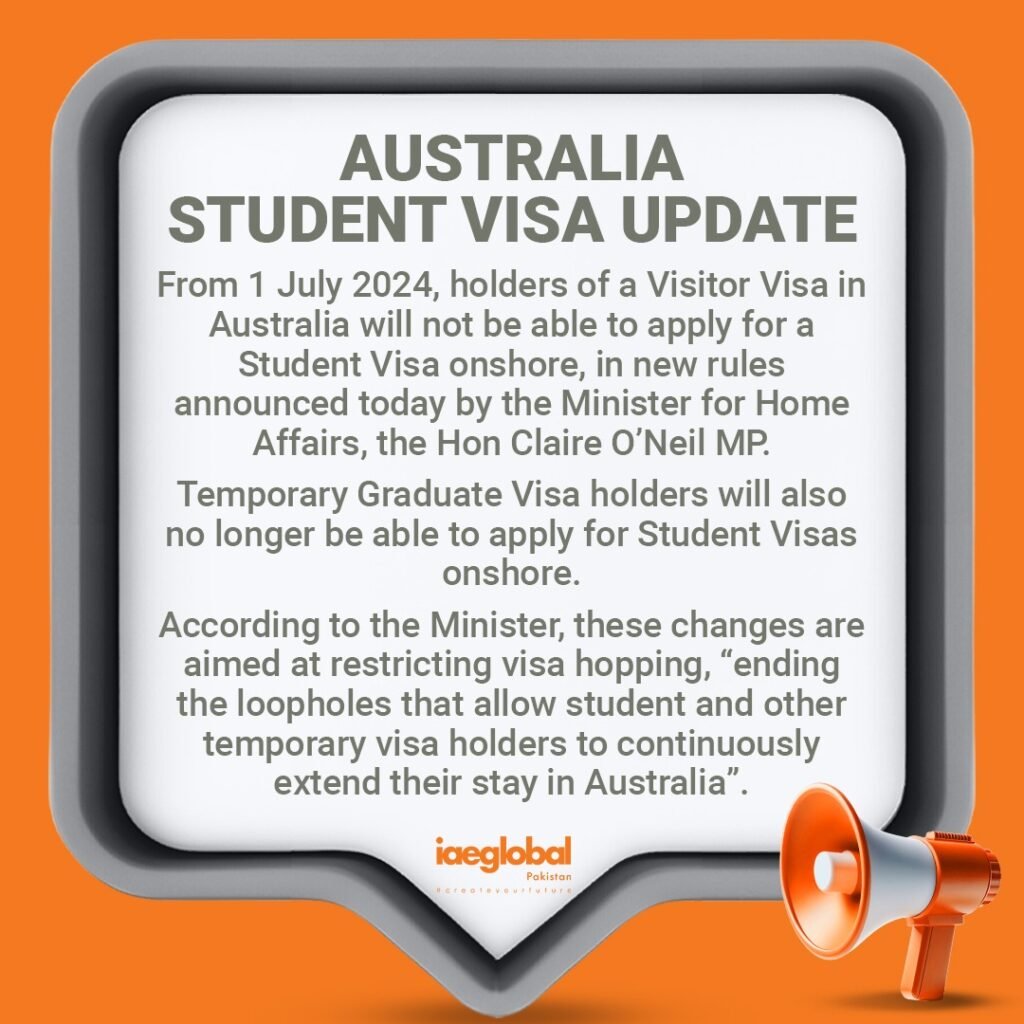
The Australian Government prioritizes the integrity of its student visa program, ensuring visas are granted to genuine students who contribute to economic growth. Recently, adjustments to Student visa eligibility were introduced as part of the Migration Strategy launch. Effective July 1, 2024, certain temporary visa holders, including Temporary Graduate, Visitor, and Maritime Crew visa holders, will no longer qualify to apply for student visas while in Australia. These changes aim to streamline visa processes and maintain the program's integrity.

Minister Marc Miller announced initiatives to fortify Canada’s International Student Program, safeguarding against fraud. Effective December 1, 2023, designated learning institutions (DLIs) must verify each applicant’s acceptance letter directly with IRCC, ensuring study permits are issued based on genuine offers. By fall 2024, IRCC will implement a "recognized institution" framework, prioritizing high-standard DLIs. Reforms to the Post-Graduation Work Permit Program will follow, aligning with Canadian labour needs and immigration goals, including Francophone and regional priorities.

Beginning March 4, 2024, British Columbia (B.C.) will implement the Provincial Attestation Letter (PAL) system for international students, in line with federal mandates by Immigration, Refugees and Citizenship Canada (IRCC). The PAL will verify student allocations, facilitating streamlined processes under new federal visa application caps. British Columbia is allocating 83,000 undergraduate study permits, with 53% reserved for public institutions and 47% for private institutions, demonstrating its commitment to supporting diverse educational opportunities.

IRCC has recently broadened its acceptance of English language tests for SDS applicants, now including CELPIP General, CAEL, PTE Academic, and TOEFL iBT. Additionally, applicants can opt for IELTS General Training or Academic tests. Effective from August 10th onward, revised IELTS requirements for SDS will be implemented. These adjustments are designed to enhance flexibility and accommodate diverse needs among international students seeking Canadian study permits through the Study Direct Stream (SDS).
